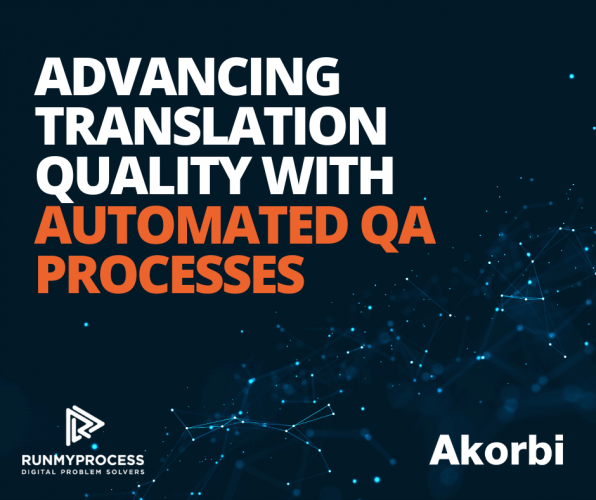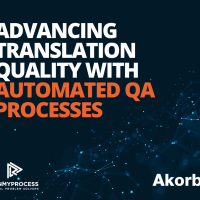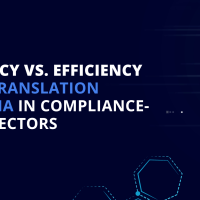
Solutions, Technology
Mar 19
Advancing Translation Quality with Automated QA Processes
Machine Translations & the Role of Quality Assurance Tools
When aiming to reach a global audience, precise and high-quality translations are essential, and, as businesses extend their presence internationally, the need for quick, extensive translations rises. While many organizations opt for machine translations due to their speed and scale, this transition can impose significant challenges, such as higher chances of errors and cultural insensitivity. These mistakes can damage a brand's reputation and hinder effective communication with potential customers.
Quality assurance (QA) tools are available to mitigate these risks by checking translations for errors. They work by analyzing the translated text for grammatical and spelling errors, as well as ensuring accuracy in terms of cultural sensitivity.
Yet, integrating these tools into existing workflows can prove cumbersome, especially when managing translations across multiple platforms like websites, marketing materials, and company communications. The complexity of ensuring quality while maintaining efficiency poses a significant challenge for businesses aiming to operate on a global scale.
Akorbi's Low-Code Platform Revolution
Enter low-code platforms like Akorbi's RunMyProcess, which are designed to streamline the integration of QA tools into translation workflows. These platforms offer a way to automate the quality assurance process, connecting directly with existing systems for a smoother operation. With RMP, businesses can design customized workflows that automatically route translations through QA checks without manual intervention. This means translations can be managed, checked for quality, and published across various platforms effortlessly, ensuring both speed and accuracy.
A Game-Changer for Quality Assurance
Akorbi's RMP allows users to build automated workflows that dramatically reduce the complexity of managing translations. This not only simplifies the process of implementing QA systems but also ensures that translations are consistently accurate and culturally appropriate. By leveraging RMP, businesses can avoid the pitfalls associated with machine translations and manual QA checks. This streamlined approach to translation management means that content destined for websites, marketing collateral, and company communications is not only accurate but also aligns with the intended message and tone for every target audience.
Setting a New Standard in Translation Quality Assurance
The rise of low-code solutions like RunMyProcess is setting a new standard in the translation industry. By simplifying the quality assurance process, these platforms are helping businesses overcome the challenges of global communication. The ability to automate and integrate QA checks into existing workflows represents a significant leap forward, ensuring that translations are not only fast and efficient but also accurate and culturally sensitive. Contact Akorbi today to learn more about our low code solutions and translation capabilities.



